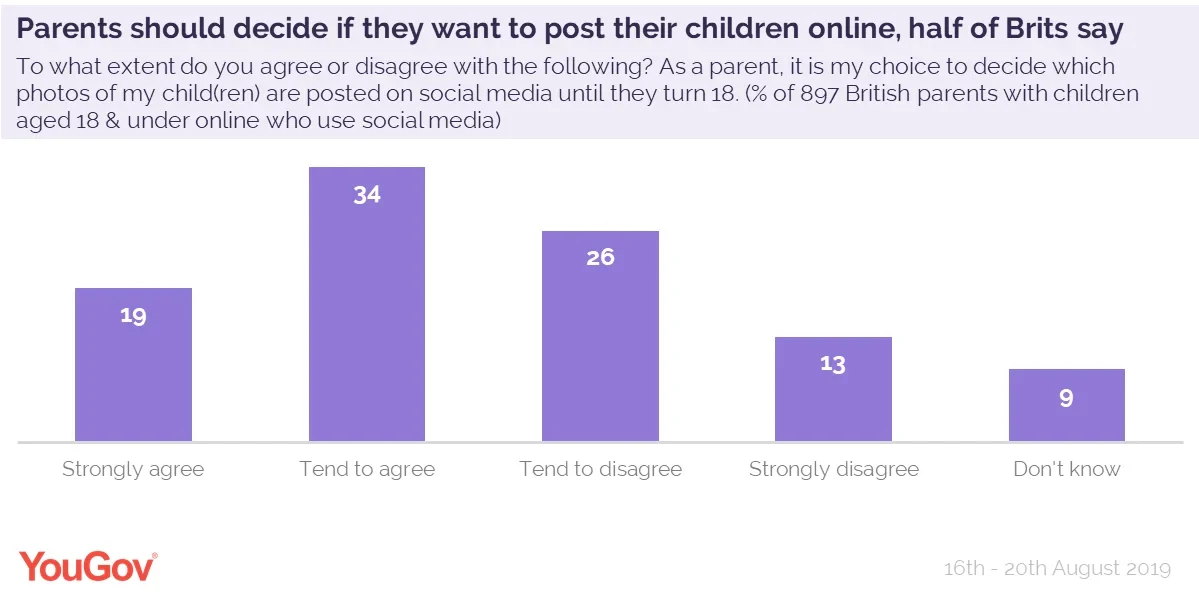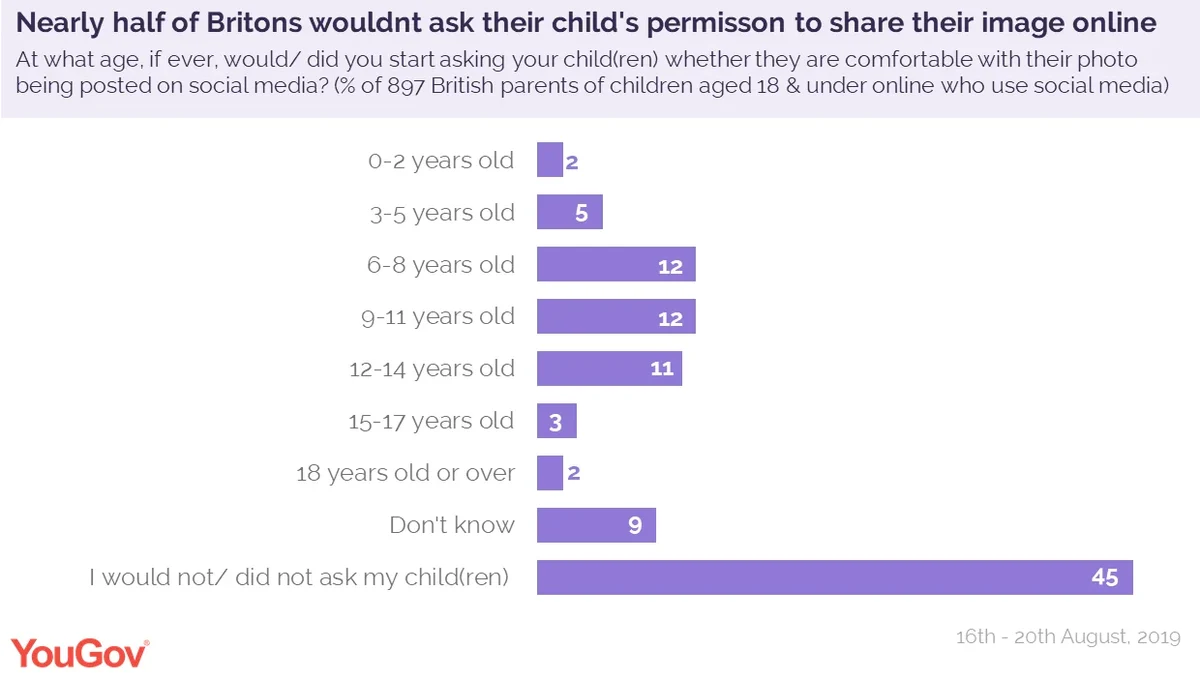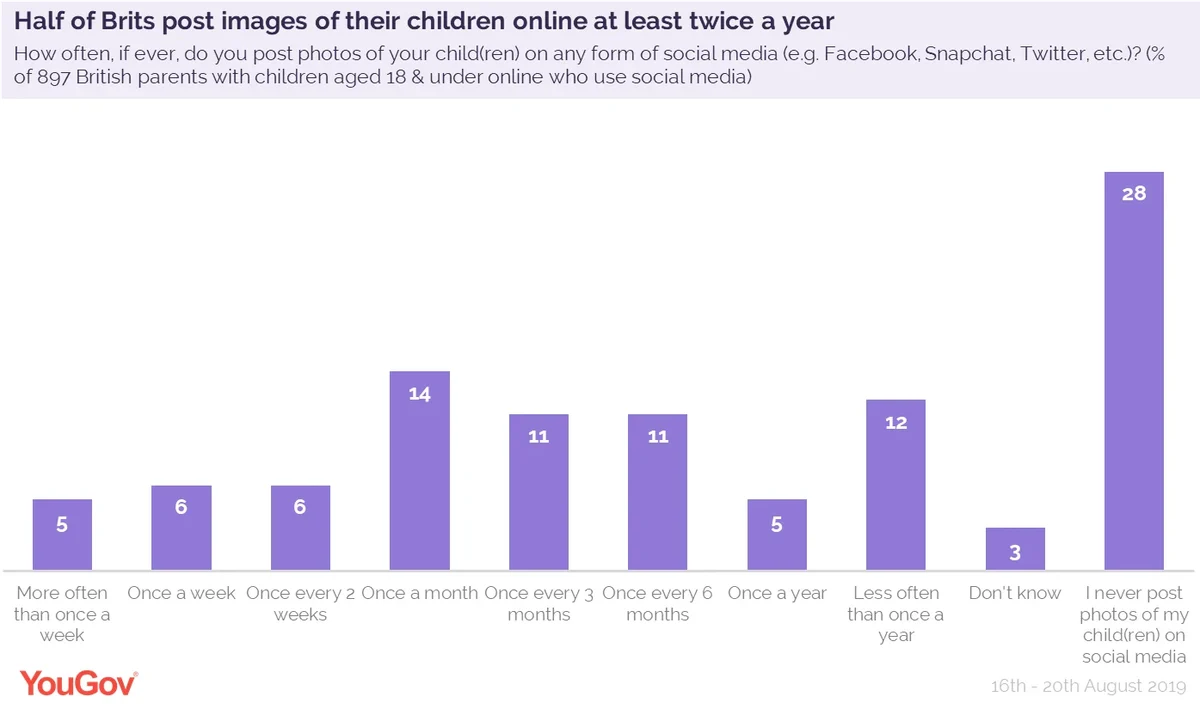The majority of Brits have posted pictures of their children on social media, despite concerns over consent – with one in ten posting nude images
Parents are proud of their children, and naturally want to share their achievements and milestones with family and friends.
In the past this meant getting out dusty photo albums or trying to hook up a camcorder to your television. However, with the rise of social media it is becoming increasingly common for parents to share photos of their children online: 70% of British parents now have done so at least once.
Adults can choose what they share about themselves, but when it comes to their children who should have the final say?

Half of Britons (53%) agree to some extent that until a child turns 18 and becomes an adult, parents should have the final say – but 39% disagree.
Of parents who have children under 18 and use social media, 45% say they would not ask their children for their consent before doing so.

When parents do ask for consent, the most common (12%) age to starting doing so is between the ages of six and 11.
Despite this the debate over consent, Britons are still posting: 53% post images of their children at least twice a year and 16% do it multiple times a month. Snapchat-savvy parents are the most likely to post images of their children on social media, with 86% of parents who use the app having posted at least one image.

One in ten Britons said they have posted photos online of their children nude, while 11% also say they have used filters to change their child’s appearance in photos. A third (32%) said they have posted photos of their children that contained identifying information such as school uniforms or street signs.
Parents who do post photos of their children say that photos are only shared with friends (88%) and family (84%). Just under half of Britons say they also share the photos with acquaintances (44%) such as neighbours and work colleagues.
The biggest concerns of parents who do not post photos of their children online is that strangers would be able to view or share photos of their children inappropriately (44%) followed by concerns over data collection and facial recognition software (27%).
Image: Getty







